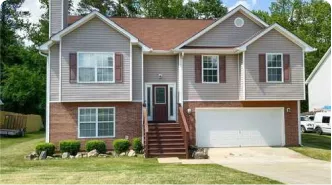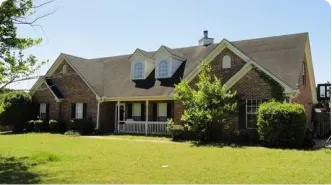Owning a home comes with a lot of responsibility—and just as many potential surprises. Whether it’s a leaky roof after a storm or a busted dishwasher on a Tuesday morning, things can and do go wrong. That’s why smart homeowners look for ways to protect their property and their wallets. But here’s where it gets confusing: what exactly does a home warranty cover, and how is it different from homeowners insurance?
If you've ever mixed the two up, you're not alone. While both offer important types of protection, they serve very different purposes. Below, we’ll break down the key differences, benefits, and limitations of each—and help you decide which one (or both) is right for your situation.
What is a Home Warranty?
A home warranty is basically a service contract that helps cover the cost of repairing or replacing major systems and appliances in your home when they break down from normal wear and tear. Think of it as a backup plan for your HVAC, plumbing, electrical system, fridge, oven, and other essentials that keep your home running smoothly.
Most home warranty plans also offer optional add-ons for things like pools, spas, septic tanks, or even a second fridge—just in case you’ve got more to protect.
The cost typically ranges from around $300 to $700 per year, and you can usually pay monthly or annually. You’ll also pay a small service fee (usually $75–$125) whenever you request a repair.
Home warranties are often purchased during a home sale—either by the buyer for peace of mind, or by the seller as a sweetener to help close the deal.
What is Home Insurance?
Home insurance, or homeowners insurance, is your financial safety net when the unexpected hits your property. It’s designed to protect the structure of your home and your personal belongings inside—things like your furniture, electronics, and even clothing. Most policies cover major events like fire, theft, vandalism, and certain types of weather damage. Many also include liability protection in case someone gets hurt on your property.
If you have a mortgage, your lender will almost always require you to carry home insurance. It’s their way of protecting their investment—and yours.
There are different types of policies, but the most common is an HO-3, which covers your home against all perils except those specifically excluded. An HO-5 policy offers even broader protection, especially for personal belongings. Your premium will depend on factors like your home's value, location, claims history, and how much coverage you choose, including your deductible.
Key Differences Between Home Warranty and Home Insurance
Home warranties and home insurance both offer valuable protection, but they serve different purposes. Here's how they stack up:
- Coverage focus: Home warranties cover major systems and appliances (like your HVAC, water heater, and oven). Home insurance covers the physical structure of your home and your belongings in case of disasters like fires or storms.
- Trigger for use: A home warranty is used when something breaks down from regular wear and tear. Home insurance kicks in when there's damage from unexpected events like theft, weather, or accidents.
- Required vs. optional: Home warranties are completely optional. Home insurance is typically required by your mortgage lender.
- Contract duration: Home warranties are usually one-year contracts that can be renewed annually. Home insurance policies also run yearly but are part of your mortgage and more standardized.
- Claim process: With a home warranty, you pay a service fee for repairs. Insurance claims involve meeting your deductible and may take longer to process.
When Do You Need a Home Warranty?
A home warranty can be a smart safety net—but it's not for everyone. So when does it actually make sense to get one?
- You’re buying an older home: If the house has aging systems or appliances, a warranty can help offset repair or replacement costs when things start to wear out.
- You’re a first-time homebuyer: New to homeownership? A warranty can offer peace of mind while you get used to the ins and outs of maintaining a home.
- You’re selling a home: Offering a home warranty can make your listing more attractive. It reassures buyers that unexpected repairs won’t hit them right after moving in.
Before signing up, take a close look at the plan details. Watch for service fees, coverage limits, excluded items, and waiting periods—those little fine-print items can make a big difference in how useful the warranty actually is.
When Do You Need Home Insurance?
If you have a mortgage, you pretty much have to carry home insurance—lenders won’t fund a loan without it. But even if you own your home outright, insurance is still a smart move. It’s your financial safety net when the unexpected hits.
Homeowners insurance is designed to protect you from big, costly events. We’re talking about things like fires, storms, burglaries, and even someone getting hurt on your property. These aren’t everyday issues, but when they happen, the damage (and the bills) can be huge.
Imagine a tree crashing through your roof during a storm, or coming home to find your place ransacked. Or maybe a visitor slips on your icy walkway and ends up in the ER. In all of these situations, your home insurance is what steps in to help cover the costs. It's not just helpful—it's essential.
Can You Have Both?
Absolutely—you can (and sometimes should) have both a home warranty and home insurance. They actually work really well together because they cover completely different types of problems.
Home insurance protects you from big-ticket disasters—things like a fire, a major storm, or a burglary. It helps you rebuild, repair, or replace your home and belongings when something unexpected and serious happens. On the other hand, a home warranty steps in to handle the everyday breakdowns that aren’t caused by outside events, like when your air conditioner stops working in the middle of summer or your dishwasher calls it quits.
For example, if a storm rips part of your roof off, your homeowners insurance would cover the repair. But if your HVAC system dies a few weeks later from regular wear and tear, your home warranty would take care of that. Having both gives you more complete peace of mind.
Pros and Cons Summary
Still not sure which one makes more sense for you? Let’s take a quick look at the ups and downs of each option:
Home Warranty
✅ Great for peace of mind—especially if your appliances or systems are older
✅ Helps with budget planning since you won’t be hit with surprise repair costs
❌ Coverage can be limited and doesn’t include everything you might expect
❌ You’ll usually pay a service fee for each repair, and not every claim gets approved
Home Insurance
✅ Offers broad protection for your home and belongings against major events
✅ Often required by lenders, so it’s a must if you have a mortgage
❌ Premiums can be pricey, especially in high-risk areas
❌ Doesn’t cover normal wear and tear—if something breaks on its own, you’re on your own
Both have their place—it just depends on what kind of protection you’re looking for.
Choosing the Right Option for You
Deciding between a home warranty, home insurance, or both really comes down to your personal situation. Start by thinking about the age of your home and appliances. If your systems are older and you’re worried about repairs popping up, a home warranty could save you a lot of headaches (and money).
Next, consider your risk factors. Do you live in an area prone to storms, wildfires, or flooding? If so, strong homeowners insurance is a must-have to protect your investment.
Also think about your financial comfort level. Would an unexpected $5,000 roof repair wipe out your savings? If the answer is yes, having the right coverage in place gives you some breathing room.
When you’re shopping around, take time to read customer reviews, dig into the fine print, and look carefully at coverage limits and exclusions. Not all providers are created equal—and a little homework now can make a big difference later.
The Bottom Line
Understanding the difference between a home warranty and home insurance is key to protecting your home—and your peace of mind. Each serves a unique purpose, and together they can offer a well-rounded safety net for both unexpected breakdowns and major disasters. The best approach is to assess your specific needs, consider your home’s age, location, and your budget for repairs, then build a protection plan that makes sense for you.
Already have coverage? Great—now’s a good time to review it and look for any gaps.
And if you’re a short-term rental host, don’t forget your property needs specialized protection too. Awning’s short-term rental insurance is built specifically for Airbnb and vacation rental hosts, offering coverage that standard homeowners policies often don’t. It’s a smart add-on to your protection strategy.
.svg)













%201.webp)
%203.webp)



%201.webp)
.webp)


